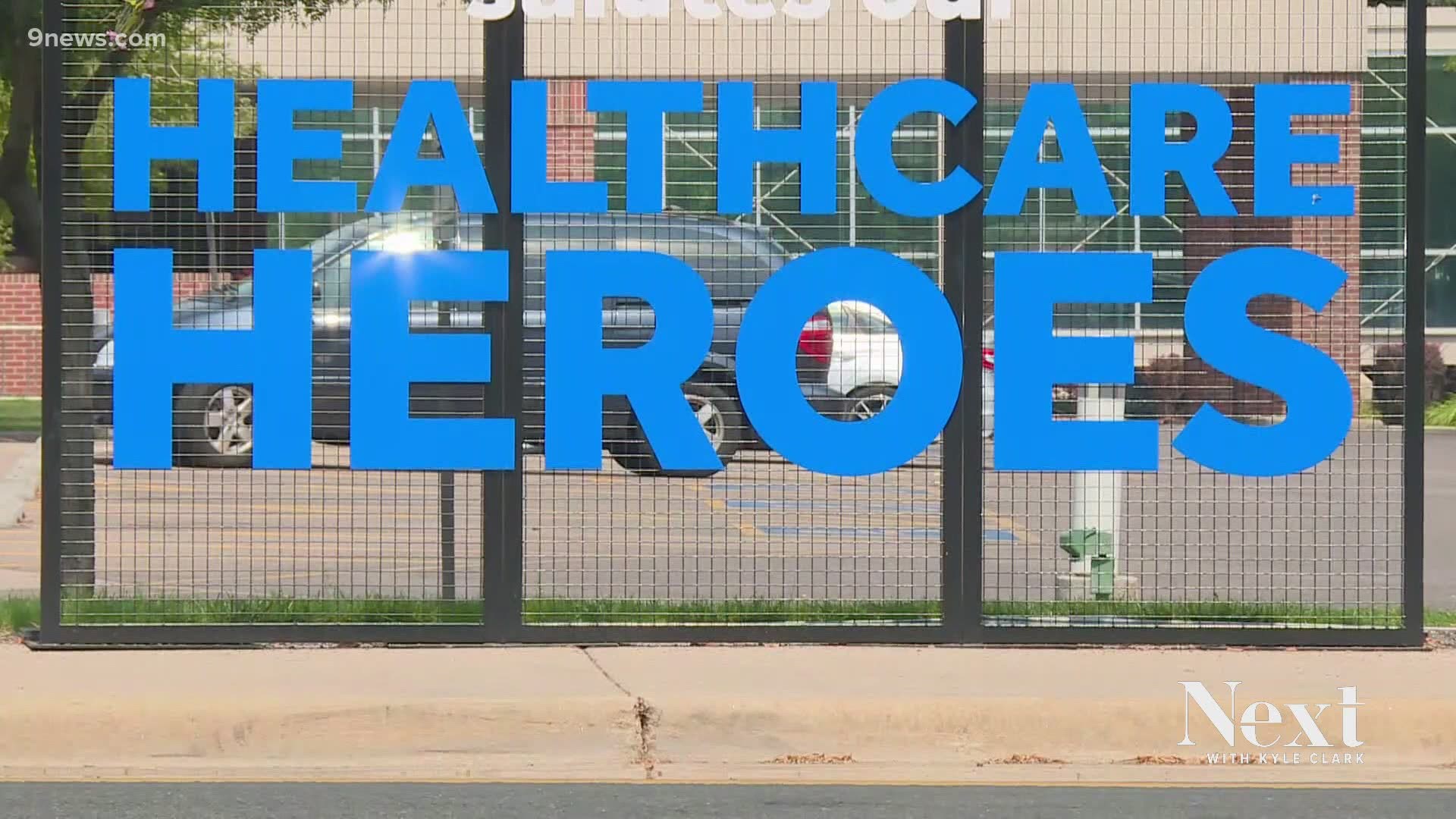DENVER — Colorado is already beginning to see the impact of the coronavirus vaccine.
Frontline health-care workers who have been vaccinated against COVID-19 can continue to work treating patients without the fear of getting sick. As the number of people hospitalized with the virus continues to decline, the number of hospitals concerned about staffing shortages is also going down.
As of Monday, only 10% of facilities anticipate staffing shortages in the next week. That’s about eight to 10 hospitals around the state. Just a couple of months ago, more than 1/3 of all facilities in Colorado anticipated staffing shortages.
"At one point we had a couple hundred staff out at a time, either because they were being quarantined or tested. Today we have two," said Dr. JP Valin, the chief clinical officer for SCL Health.
Valin said most of his staff who got sick with COVID-19 caught the virus while away from the hospital. Now, fully vaccinated health-care workers who are exposed to the virus can still work.
"If they are exposed and have an exposure to COVID, they can now just simply monitor for symptoms. They do not have to quarantine and stay away from work," Valin said. "If they were at any point to develop any type of a symptom, we would want them to quarantine and get them tested for COVID."
The state department of health (CDPHE) said more than 90% of all health-care workers in Colorado are now fully vaccinated. As the positivity rate in the state continues to decline, the number of patients in hospitals continues to decrease as well.
As of Feb. 15, there were 411 hospitalized COVID patients in Colorado. Compare that to the peak in the beginning of December when the number was more than four times that amount.
"It wasn’t just an urban issue or a rural issue. Every hospital was experiencing their own unique challenges when it came to staffing. Without staff, you can’t care for patients coming into our hospitals," said Amber Burkhart, public policy director with the Colorado Hospital Association. "Now that many of our health-care workers are vaccinated, it’s helpful when they’re in the hospital. When patients come in, there’s not necessarily that threat of them becoming infected by COVID-19."
Hospitals around the state dealt with the staffing shortages by flying in nurses and doctors from other states to help deal with the surge in patients. Of course, during this most recent surge, hospitals around the country were all in need of more staff.
Banner Health hospitals brought in staffing reinforcement from around the country.
"After going through the first surge, them mustering up what they needed to do to get us through the second one was tremendous," said Carrie Haas-Vukosovich with Banner Health. "Luckily Colorado surged at a different time than Arizona, so we were able to help each other out."
While vaccines are certainly a game-changer for the pandemic, there are other factors that can dictate why staffing isn’t as big of a problem right now.
Community spread of the virus is a big factor. If there’s less virus spreading around in the community, less people are going to get sick and need to come into the hospital.
"What’s most important is that the positivity rate across the state has decreased significantly, so every Coloradan is doing their part to ensure the spread of COVID is not continuing," said Burkhart. "They [health-care workers] are less likely to come into contact with someone who has COVID-19, which helps protect them when they go into work and are working with vulnerable patients."
SUGGESTED VIDEOS: COVID-19 Coronavirus

